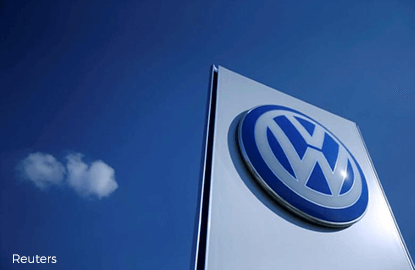
PEKAN: Malaysia will remain Volkswagen Group’s Asean hub despite the German automotive giant’s plan to establish a new production plant in Thailand. “We have positioned Malaysia as our CKD (completely knocked-down) hub in Asean. That fact will remain, regardless of our plan to enter any emerging markets within the region,” Volkswagen Group Malaysia Sdn Bhd managing director Armin Keller told The Edge Financial Daily last week. Keller is also Volkswagen AG executive director of Asean sales.
Volkswagen in September last year received approval to establish a new manufacturing plant in Thailand to produce fuel-efficient cars with an investment commitment of €1 billion (RM4.01 billion at the current exchange rate). “It was a necessity for us to penetrate the Thai market, following the call for tender by its government. There has not been any significant development at this stage, but we envisage that different factories will focus on producing different models,” Keller said, declining to reveal more.
Previously, German weekly business magazine Wirtschaftswoche had reported that Volkswagen plans to build 1.4-litre engine cars at the Thai plant, with a production capacity of 300,000 vehicles per year at full capacity, and that it is scheduled to commence operations in 2019.
As for its plan this year, Keller said Volkswagen Malaysia will focus on strengthening its production capacity here and boosting sales via the introduction of new models such as the Passat, which will take place towards the end of the year. “New models will be launched this year, beginning with a Polo facelift followed by our best-selling models such as Passat, by year-end,” he said.
Last year, Volkswagen Malaysia saw its sales drop 6.5% to 8,916 units from 9,538 units in 2013, which Keller said was “due to several factors”.
This year, Keller is optimistic about the group’s performance, despite a more challenging environment, what with the upcoming implementation of the goods and services tax (GST) and a weaker ringgit. However, he was disappointed that the government, as well as some other automakers, had announced that there would be a reduction in car prices post-GST. “Such announcements will only put unnecessary pressure on themselves,” he said.
Last January, International Trade and Industry Minister Datuk Seri Mustapa Mohamed said the government was “confident” of achieving a car price reduction target of between 20% and 30% by end-2017.
Honda Malaysia Sdn Bhd had also announced that it expects its vehicle prices to be reduced by between 1% and 2% on average post-GST and that the slight decline would be primarily due to the 4% gap between the 6% GST rate and that of the current 10% sales and service tax.
“The mathematics of the GST is not as simple as finding the difference between 10% (sales tax) and 6% (GST). Regrettably, that is a naïve approach as there is a different tax treatment for different models at different supply chain stages. Our calculation shows that, in general, the GST is neutral on car prices, meaning that it will not see any immediate increase or decrease in vehicle prices. This applies to every model,” Keller said, adding that Volkswagen is committed to maintaining its current vehicle prices post-GST.
As for currency exchange, Keller said Volkswagen Malaysia’s functional currency “is factored” in the US dollar more than the euro. “We do not embark on a hedging position to mitigate the risks, given the smaller volume that we have [here],” he said, adding that the group is constantly “looking for ideas” to stabilise the impact of fluctuating currency on its financial health.
Keller is also optimistic about Malaysia’s plan to roll out the Euro 5 fuel standard nationwide by 2020, saying it will enable Volkswagen to introduce more efficient models that comply with the fuel standard. “We believe that hybrid is state-of-the-art technology. But for Malaysia, we believe that there is a greater demand for cleaner fuel (Euro 5). As such, we will be aggressive on promoting the clean diesel technology, which is part of our strategy in this region,” he said.
This is primarily why Volkswagen did not aggressively promote hybrid cars in Malaysia even though it is selling its hybrid Touareg here. “We do not receive any customised incentive related to [the] hybrid vehicle as we do not produce it in Malaysia. But, we are always open to this option,” he said. Going forward, Keller said Volkswagen is committed to ramp up its production capacity here with investments in body, press and paint shops.
Established in 2012, Volkswagen’s production plant in Malaysia is operated by Hicom Automotive Manufacturers Malaysia Sdn Bhd, a unit of DRB-Hicom Bhd, which is controlled by tycoon Tan Sri Syed Mokhtar Al-Bukhary, with an initial investment of RM1.6 billion. The plant currently assembles four of the total of 15 models available in Malaysia — Polo Sedan, Polo Hatchback, Jetta and Passat.
Volkswagen has no immediate plans to assemble its Golf or Audi here, said Keller, adding that the vehicles it currently produces here have already reached 40% local content. Critical components such as engines are still produced in its various plants in India, South Africa and Germany.
With a production capacity of 80 cars per shift or 10 cars per hour and 40,000 units per year here, the plant’s utilisation stands at between 50% and 60%. It produced 9,361 passenger cars in 2014, almost double the 4,337 units in 2013.
This article first appeared in The Edge Financial Daily, on March 23, 2015.